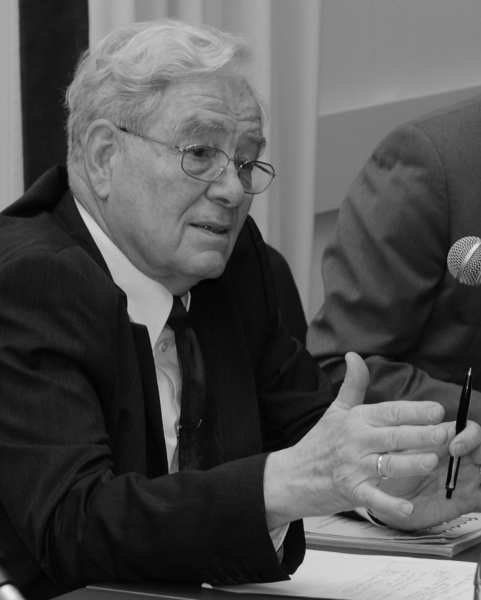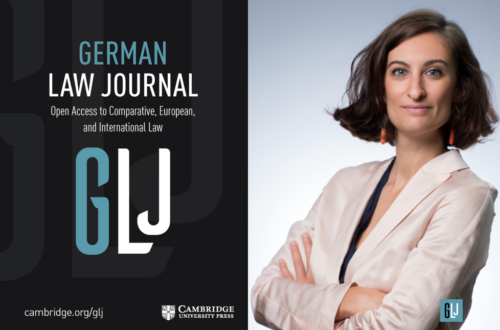
Special Issue: Statism, Secularism, Liberalism – Ernst-Wolfgang Böckenförde beyond Germany
Image: Cluster of Excellence “Religion and Politics,“ University of Münster, Dr. Holger Arning.
It is hard to overstate the influence that Ernst-Wolfgang Böckenförde has had on the development of German constitutional law scholarship, or Staatsrechtslehre. A Schmittian since the early 1950s, he consistently proved himself to be a staunch liberal—even when his constitutional convictions clashed with his catholic beliefs, such as in the case of the right to an abortion. His famous 1964 theorem, according to which the liberal secular state depends on conditions it cannot guarantee, continues to serve as a touchstone in an increasingly diverse society. A frequent dissenter on the Federal Constitutional Court’s Second Senate, Böckenförde influenced the Court’s jurisprudence in profound ways; not least in defining its mandate narrowly – but clearly. His writings, however, are relevant far beyond the German context, as this special issue demonstrates.
Mirjam Künkler and Tine Stein, the editors of two volumes presenting his selected works in English (OUP 2017 and 2018), have gathered a brilliant lineup of scholars around an exciting task: applying his ideas to current settings in Europe and beyond. The Special Issue opens with an introduction to Böckenförde’s life and work, followed by Justin Colling’s comparison of Böckenförde with prominent judges from the US, Israel, and South Africa. Shylashri Shankar, Pasquale Pasquino, Anna Jonsson Cornell & Janne Salminen, and Julian Rivers then test Böckenförde’s writings on the “state of emergency” in the context of India, France, Sweden and Finland, and Great Britain. Ute Sacksofsky, Samuel Watters, and Ralf Michaels engage with Böckenförde’s views on secularism and the freedom of religion in the context of ECtHR jurisprudence, the AKP’s religious policy in Turkey, and the proliferation of burqa bans in Europe. Finally, Vlad Perju and Jan Christoph Suntrup examine the potential of Böckenförde’s analysis of the future of the European Union for its response to the recent turn to authoritarianism in Eastern Europe and the Euro crisis, whereas Alexander Somek explores the possibility of a non-national democracy.
This is not the first time that the German Law Journal features the work of Ernst-Wolfgang Böckenförde. After all, the Journal shares with Böckenförde the interest in foundational research. Böckenförde assigned so much importance to this aspect of his professional life that he even managed to wrench some time from his busy schedule as a judge in Karlsruhe to write a book on the history of legal and political philosophy from antiquity to the middle ages. Betsy Baker reviewed it for the German Law Journal. Moreover, after 2001, Böckenförde’s thoughts on the “state of emergency” received new relevance and attention, as demonstrated by a 2005 article in the German Law Journal from András Jakab. Furthermore, the pluralization of modern society has made the fault lines between the state and religion a recurrent topics in the Journal. In a 2007 article, Karl-Heinz Ladeur and Ino Augsberg challenged Böckenförde’s concept of open neutrality. Recently, an entire special issue on the concept of constitutional identity, curated by Jürgen Bast and Liav Orgad, continued the conversation. Of the contributions to that issue, it is perhaps David Abraham’s article on circumcision that most directly engages with Böckenförde’s theorem. Last but not least, the Journal always has taken a leading role in considering and commenting on European integration. Suffice it to flag here the special issue “Lisbon v. Lisbon”, which revisited the relation between fundamental rights and fundamental freedoms, and the special issue on Europe’s regeneration, both from 2013. As the path European integration will take is still essentially up for grabs, there will be future occasions to revert to Böckenförde’s insight. The present special issue will be a valuable instrument to that challenging and noble end.







